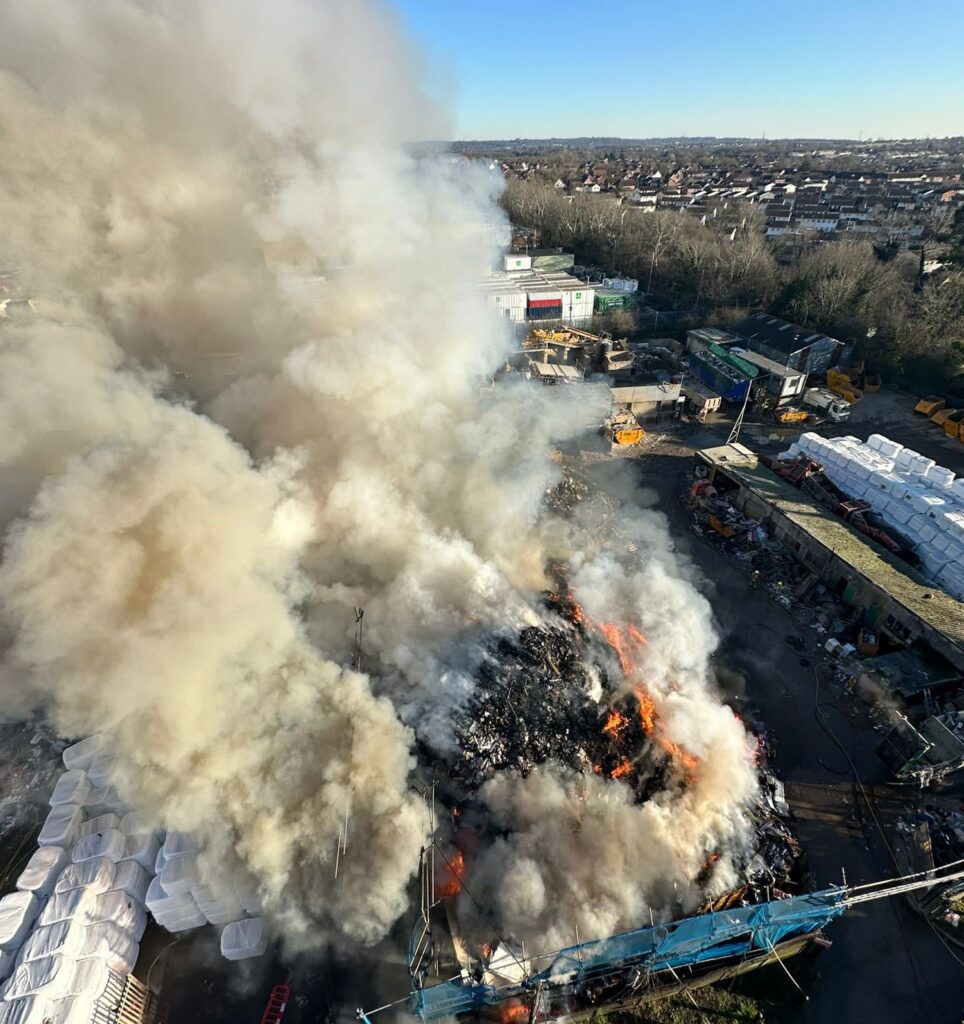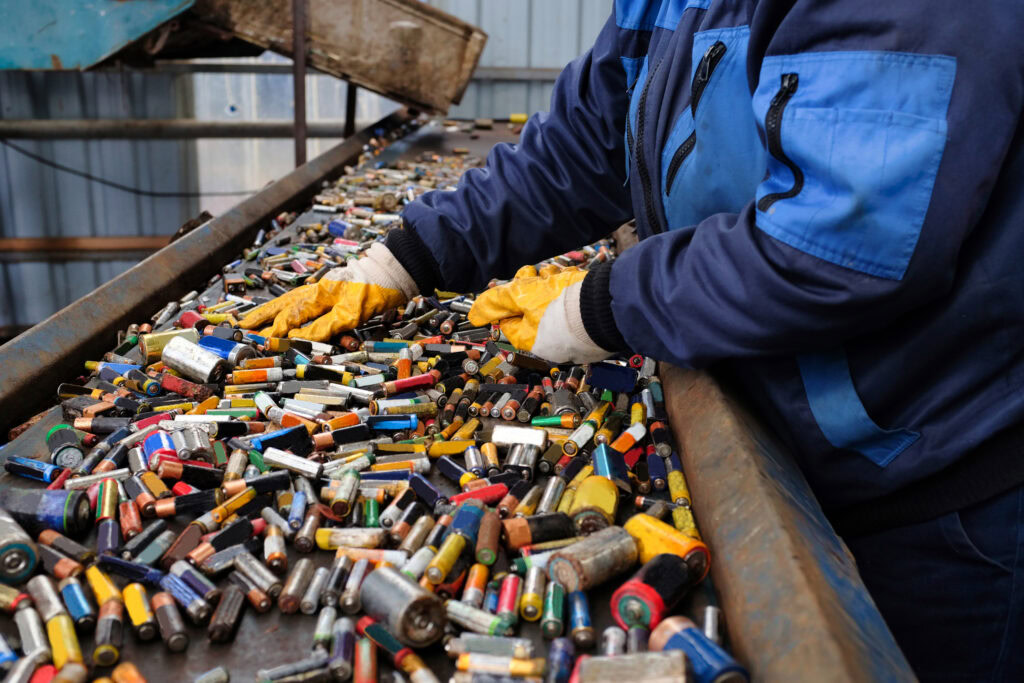The study by North London Waste Authority (NLWA) also showed that 55% of residents have experienced signs of a damaged battery, which include overheating, swelling, hissing sounds, and/or an unusual smell of smoke. Concerningly, almost a third of those continued to use the device.
Lithium batteries, commonly found in rechargeable devices such as mobile phones, laptops, power tools and e-bikes, are sensitive to high temperatures and crushing. This has contributed to a large rise in fires effecting the waste and recycling sector.
Figures show there was a 200% increase in fires caused by lithium batteries at north London’s waste and recycling facilities in just eight months. Six incidents were recorded in 2023, compared to 13 this year so far, including a major fire at Waltham Forest’s South Access Road Reuse and Recycling Centre in May.
A need to reduce growing risks
Councillor Clyde Loakes MBE, chair of NLWA, said: “There is a clear role for the government to create a step-change in reducing the significant – and growing – risks these fires present, including by introducing enhanced producer responsibilities among manufacturers – without delay – to encourage appropriate and safe disposal.”
The survey of more than 1,000 Londoners also showed that almost 60% have purchased a non-branded replacement charger for their electronic devices. Three-quarters leave their devices on charge unattended overnight or for long periods of time.
Official guidelines state that only recommended chargers should be used to ensure compliance with UK safety standards, with devices never left on charge unattended. They should also be kept out of direct sunlight and never overcharged.
The challenges associated with lithium battery disposal are currently being discussed as part of the Lithium-Ion Battery Safety Bill. A consultation on reforms to UK battery regulations – including disposal – has been promised by the government, with NLWA calling for its urgent launch.









Subscribe for free